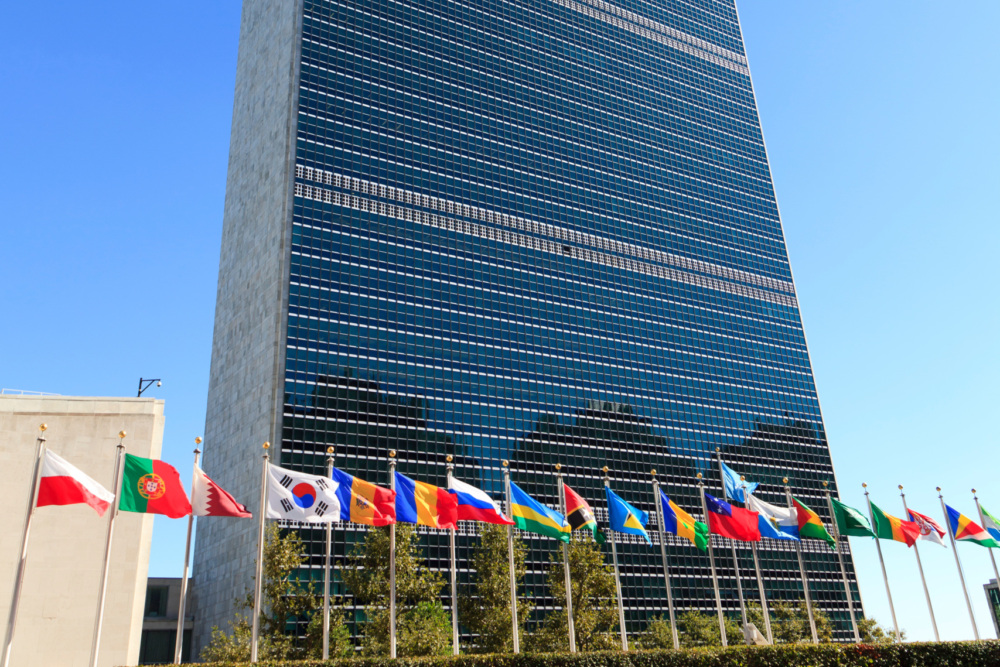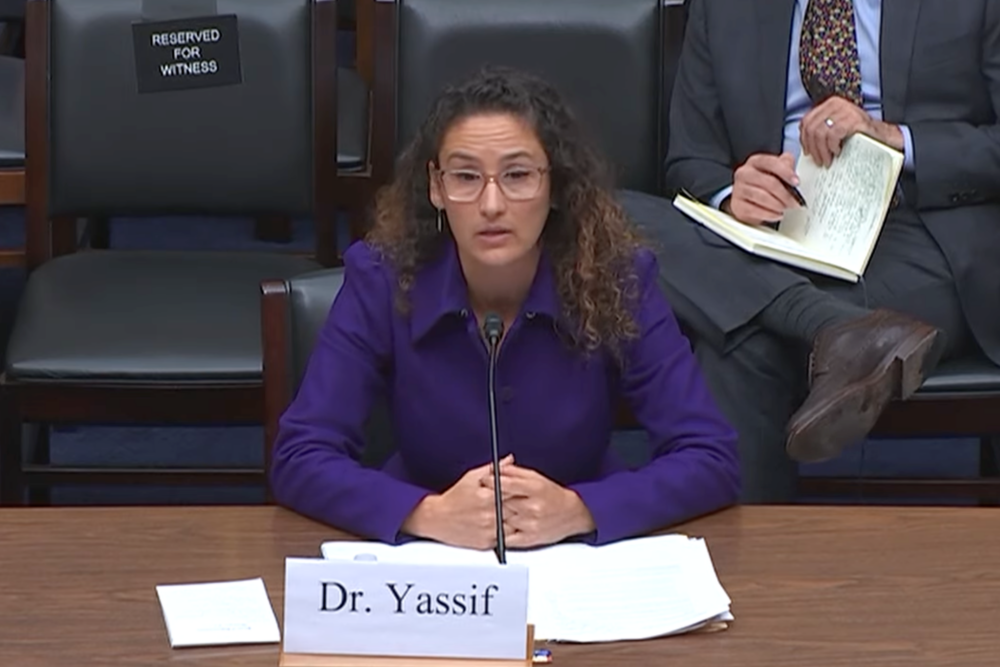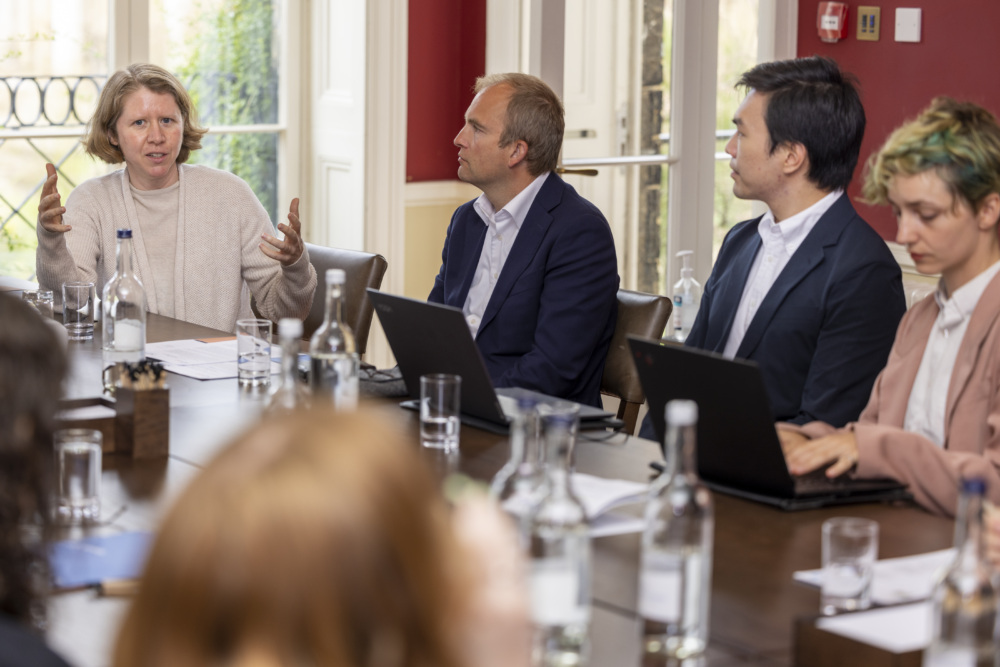
Sam Nunn
Co-Founder and Co-Chair, NTI
Sam Nunn Testifies on Biological Weapons Threats
Former Senator Sam Nunn, co-chairman of NTI, today discussed the outcome of Dark Winter, a recent exercise simulating a biological weapons attack against the United States. He also outlined actions needed to better prepare for the possibility of a biological weapons attack. The following are excerpts from his testimony submitted for the House Government Reform Committee’s Subcommittee on National Security, Veterans Affairs and International Relations hearing “Combating Terrorism: Federal Response to a Biological Weapons Attack”:
“It was challenging to play the part of the President in the exercise Dark Winter that simulated a smallpox attack on the United States. You often don’t know what you don’t know until you’ve been tested. And it’s a lucky thing for the United States that—as the emergency broadcast network used to say: “this is just a test.” It is not a real emergency. But Mr. Chairman, our lack of preparation is a real emergency.
“Many participants in the exercise would have been much more in their element if we had been dealing with a terrorist bomb attack. The effects of a bomb are bounded in time and place. After the explosion, the nation’s leadership knows if you’re injured and the extent of the damage. We can begin rebuilding. Smallpox, on the other hand, is a silent, ongoing, invisible attack. It is highly contagious, and spreads in a flash—each smallpox victim can infect ten to twenty others. Because it incubates for two weeks—it comes in waves.
“The most insidious effect of a biological weapons attack is that it can turn Americans against Americans. Once smallpox is released, it is not the terrorists anymore who are the threat; your neighbors and family members can become the threat, and can even become the enemy, without strong and effective leadership at every level of government, including health officials.
“It is important not to overstate the threat. But it is not necessary to overstate the threat to make the point that it is real, it is dangerous, and if it came today it would catch us unprepared.
“We have made progress, but we have to do more—and quickly.
“Number one: We need to focus more attention, concern and resources on the specific threat of bio-terrorism—understanding that it is different from other threats.
“Two: We need to recognize the central role of public health and medicine. In the event of a biological weapons attack, millions of lives will depend on how quickly doctors diagnose the illness, report their findings, and bring forth an effective response.
“Three: We need to engage all levels of government and a broad set of agencies in our efforts to understand and prepare for the threat of bio-terrorism.
“Four: We can manage this type of crisis successfully only with a clear strategy for working with the media—as partners in communicating life-saving information and managing public apprehension and panic.
“Five: The national pharmaceutical stockpile should be built to capacity as soon as possible—and then dispersed to different sites, which must be secured. We don’t want to fall victim to a twin attack that releases a bio-agent and simultaneously blows up all our drugs and vaccines.
“Six: We need to develop plans for a surge of patients in the nation’s hospitals. Most hospitals are operating near, or above, capacity right now.
“Seven: Officials at the highest level of the federal government—and at state and local levels—need to participate in exercises like Dark Winter to understand the importance of advance preparation.
“Eight: We need to increase the core capacities of our public health system to detect, track and contain epidemics, by providing resources for effective surveillance systems, diagnostic laboratory facilities, and communication links to other elements of the response effort.
“Nine: We need to increase funding for biomedical research to develop new vaccines, new therapeutic drugs, and new rapid diagnostic tests for the most threatening bio-weapon agents.
“Ten: We need to increase our efforts to prevent the proliferation of biological weapons, in part by providing peaceful research options to scientists in the former Soviet Union, who represent the world’s greatest concentration of experts in biological warfare.
“Eleven: We need to encourage the scientific community to confront the sinister potential of modern biological research, and help them devise systems and best practices to prevent dangerous materials and information from falling into the wrong hands.
“Twelve: We need to reexamine and modernize the legal framework for epidemic control measures and the appropriate balance with civil liberties—the laws that would apply if we were to find ourselves managing the crisis that would come with a biological weapons attack. These laws vary from state to state and many are antiquated.
“Enemies don’t attack you where you’re strong; they will attack us where they believe we are vulnerable. Today, we are vulnerable to a biological weapons attack. And it is crucial that we prepare with all possible speed, because if an attack comes, and succeeds, there will be others. Preparing is deterring.”
NTI, co-chaired by Ted Turner and Sam Nunn, is a new foundation dedicated to reducing the risk of use and the threat from nuclear, chemical and biological weapons.
Sign up for our newsletter to get the latest on nuclear and biological threats.
NTI | bio convened two working groups of international biosecurity experts to discuss policy and institutional considerations, and technical operations for the Joint Assessment Mechanism (JAM) to identify the source of high-consequence biological outbreaks of unknown origin.
Jaime Yassif called on government leaders to take urgent steps to strengthen biosafety and biosecurity policy and practices during a hearing convened by the U.S. House Select Subcommittee on the Coronavirus Pandemic.
NTI | bio convened the annual Biosecurity Innovation and Risk Reduction Initiative (BIRRI) meeting from May 31 to June 2 at Downing College in Cambridge, United Kingdom.


